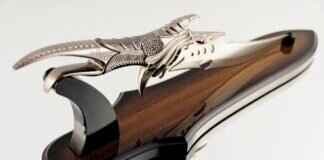The future of Asian massage spas is increasingly intertwined with the global wellness movement, reflecting a shift in how people perceive health and relaxation. These spas are not merely places for physical treatments; they have become essential components of a holistic wellness culture that emphasizes both physical and mental well-being. This article delves into the evolving landscape of Asian massage spas, highlighting their significance in contemporary wellness culture and their ability to adapt while honoring traditional practices.
The Rise of Asian Massage Spas
In recent years, Asian massage spas have experienced a remarkable surge in popularity across the globe. Their unique offerings, which often blend ancient techniques with modern wellness trends, appeal to diverse cultures seeking authentic and effective relaxation methods. These spas provide a sanctuary that caters to the growing demand for self-care and stress relief, establishing themselves as pivotal players in the wellness industry.
Traditional Techniques vs. Modern Adaptations
While traditional Asian massage techniques are deeply rooted in cultural heritage, they are increasingly being adapted to fit contemporary wellness trends. This evolution ensures that these practices remain relevant and accessible to a broader audience. By integrating modern elements like aromatherapy and personalized treatments, spas can enhance the effectiveness of traditional methods without compromising their essence.
- Popular Traditional Massage Styles
- Thai Massage: A holistic approach that combines acupressure, yoga, and meditation.
- Shiatsu: A Japanese technique utilizing finger pressure to restore energy balance.
- Tui Na: A Chinese therapeutic massage focusing on acupressure and meridian pathways.
Health Benefits of Asian Massage Therapies
Regular sessions at Asian massage spas offer numerous health benefits, ranging from physical relief to improved mental health. These therapies can alleviate pain, enhance circulation, and promote relaxation, making them essential for maintaining overall well-being.
The Role of Technology in Massage Therapy
The integration of technology within the massage spa experience is transforming how clients engage with wellness services. Innovations such as online booking systems, virtual consultations, and smart massage devices are enhancing customer convenience and accessibility.
- Telehealth and Virtual Wellness Consultations: Clients can now receive personalized guidance from the comfort of their homes.
- Smart Devices and Massage Tools: These tools empower individuals to manage their wellness outside of traditional spa settings.
The Future of Asian Massage Spas: Trends to Watch
As the wellness industry continues to evolve, Asian massage spas are poised to adapt to emerging trends. Sustainability and holistic practices are becoming increasingly important, with spas adopting eco-friendly methods to cater to a more conscious consumer base. Additionally, the integration of various wellness modalities may offer clients a comprehensive approach to health, further solidifying the role of Asian massage spas in the future of wellness.

The Rise of Asian Massage Spas
Asian massage spas have seen a remarkable surge in global popularity, becoming a cornerstone of wellness culture in many societies. These spas offer a unique blend of traditional therapies and modern wellness practices, appealing to a diverse clientele seeking relaxation and rejuvenation. The increasing awareness of holistic health has contributed significantly to their growth, as more people recognize the benefits of integrating ancient techniques into contemporary lifestyles.
Global Appeal and Cultural Integration
The appeal of Asian massage spas transcends cultural boundaries. In regions such as North America and Europe, individuals are increasingly drawn to the authentic experiences these spas provide. The incorporation of traditional Asian practices, such as Acupressure and Ayurveda, into mainstream wellness routines has fostered a greater appreciation for these ancient arts. Furthermore, the rise of social media and wellness influencers has played a pivotal role in promoting these therapies, making them accessible to a broader audience.
Therapeutic Benefits and Client Demand
As more individuals prioritize self-care, the demand for services offered by Asian massage spas has skyrocketed. Clients are not only seeking physical relief from tension and pain but also emotional support through stress reduction and relaxation. This dual focus on physical and mental well-being is a significant factor driving the popularity of these spas. Many establishments now offer customized treatments, combining traditional methods with modern techniques to cater to individual needs.
Innovative Approaches to Traditional Practices
To remain relevant in a rapidly evolving wellness landscape, Asian massage spas are adapting traditional practices to meet contemporary demands. This includes the integration of elements such as aromatherapy and mindfulness into massage sessions, enhancing the overall experience. By blending the old with the new, these spas ensure that they not only preserve their cultural heritage but also appeal to modern sensibilities.
In summary, the rise of Asian massage spas reflects a growing global trend towards holistic wellness, characterized by a fusion of tradition and modernity. As they continue to evolve, these spas will play an essential role in shaping the future of wellness culture.

Traditional Techniques vs. Modern Adaptations
The evolution of wellness practices has led to a fascinating intersection between traditional Asian massage techniques and contemporary wellness trends. As the world becomes increasingly health-conscious, the demand for effective and holistic therapies has surged. This section delves into how these time-honored practices are being reimagined to meet modern expectations while ensuring that their cultural heritage remains intact.
One significant adaptation is the incorporation of mindfulness and meditative techniques into traditional massage practices. For instance, many spas now offer sessions that blend Thai massage with guided meditation, allowing clients to experience both physical relief and mental clarity. This fusion not only enhances the therapeutic effects but also aligns with the growing interest in mind-body connections prevalent in modern wellness.
Furthermore, the integration of aromatherapy has become a popular trend, where essential oils are used alongside traditional techniques to elevate the overall experience. For example, a classic Shiatsu session may be enriched with lavender or eucalyptus oils, promoting relaxation and enhancing the treatment’s effectiveness. This adaptation caters to clients seeking a more sensory-rich experience while still honoring the roots of the original practices.
Another noteworthy adaptation is the customization of treatments to suit individual needs. Traditional Asian massage techniques, such as Tui Na, are now often tailored based on personal health assessments. This personalized approach not only improves client satisfaction but also ensures that the therapeutic benefits are maximized according to each individual’s condition and preferences.
Moreover, the use of technology in scheduling and service delivery has revolutionized how these traditional practices are accessed. Many spas now offer online booking and personalized wellness consultations, making it easier for clients to engage with these ancient techniques in a modern context.
In conclusion, the adaptation of traditional Asian massage techniques to contemporary wellness trends illustrates a dynamic balance between preserving cultural essence and meeting the evolving needs of clients. By embracing modern practices while staying true to their roots, these therapies continue to thrive in the global wellness landscape.
Popular Traditional Massage Styles
In the realm of wellness, traditional massage styles have garnered immense popularity for their ability to promote both physical and mental well-being. Among the most revered techniques are Thai, Shiatsu, and Tui Na. Each of these styles offers unique therapeutic benefits that cater to various health needs.
Thai massage is not just a form of relaxation; it is a comprehensive therapy that combines elements of acupressure, yoga, and meditation. Practitioners use their hands, knees, legs, and feet to move the recipient into a series of stretches, enhancing flexibility and promoting blood circulation. This holistic approach not only alleviates muscle tension but also fosters a deep sense of relaxation and mental clarity.
Shiatsu is a Japanese massage technique that employs finger pressure on specific points along the body’s energy pathways. By stimulating these points, Shiatsu aims to restore the balance of energy, or Qi, within the body. This method is particularly effective for relieving stress, reducing anxiety, and enhancing overall vitality. The gentle yet firm pressure applied during a Shiatsu session can lead to profound relaxation and rejuvenation.
Tui Na is a traditional Chinese therapeutic massage that focuses on the principles of Chinese medicine. It involves various techniques such as kneading, rolling, and pressing to stimulate the flow of energy and improve circulation. Tui Na is often used to address specific ailments, including chronic pain, digestive issues, and musculoskeletal disorders. Its therapeutic nature makes it a powerful tool for both physical and emotional healing.
- Thai Massage: Enhances flexibility and promotes relaxation.
- Shiatsu: Restores energy balance and alleviates stress.
- Tui Na: Addresses specific health issues through targeted techniques.
In summary, exploring these traditional massage styles not only enriches one’s understanding of wellness practices but also offers practical benefits that can significantly enhance quality of life. Each technique reflects a deep cultural heritage while providing modern therapeutic advantages.
Thai Massage: A Holistic Approach
Thai Massage: A Holistic Approach
Thai massage is a unique form of bodywork that intricately weaves together the principles of acupressure, yoga, and meditation. This ancient practice, rooted in the traditions of Thailand, not only promotes physical flexibility but also encourages a deep sense of relaxation and mental clarity.
At the heart of Thai massage lies the concept of energy lines or Sen lines, which are believed to be pathways of vital energy throughout the body. Practitioners use their hands, elbows, knees, and feet to apply pressure along these lines, facilitating the flow of energy and releasing tension. This technique is often described as assisted yoga, as it incorporates a series of stretches that enhance flexibility and range of motion.
One of the primary benefits of Thai massage is its ability to reduce stress. The combination of gentle stretching and rhythmic pressure helps to calm the nervous system, allowing individuals to enter a state of profound relaxation. This is particularly beneficial in today’s fast-paced world, where stress levels are often elevated.
Additionally, Thai massage can significantly improve circulation. The pressure applied during the massage encourages blood flow, which can aid in the delivery of oxygen and nutrients to muscles and tissues, promoting overall health and vitality. Regular sessions can also alleviate chronic pain conditions, such as back pain and headaches, making it a valuable therapeutic option.
Furthermore, the meditative aspect of Thai massage fosters a sense of inner peace and emotional balance. As clients engage in deep breathing and mindfulness during their sessions, they often report enhanced mood and a greater sense of well-being.
In summary, Thai massage is not just a physical treatment; it is a holistic approach that nurtures the body, mind, and spirit. By integrating traditional techniques with modern wellness practices, it offers a comprehensive path toward improved health and relaxation.
Shiatsu: The Art of Finger Pressure
Shiatsu is a traditional Japanese massage technique that emphasizes the use of finger pressure to promote overall health and well-being. This ancient practice is rooted in the principles of traditional Chinese medicine, focusing on the flow of Qi (energy) through the body. By applying pressure to specific points, Shiatsu aims to restore balance and alleviate various physical and mental ailments.
The techniques employed in Shiatsu are diverse, incorporating elements of stretching, kneading, and rhythmic pressure. Practitioners often use their fingers, palms, and even elbows to target meridian points, which correspond to different organs and systems within the body. This holistic approach not only addresses physical discomfort but also promotes emotional stability and relaxation.
One of the primary benefits of Shiatsu is its ability to reduce stress. In today’s fast-paced world, many individuals experience chronic stress, leading to a host of health issues. Shiatsu encourages deep relaxation, helping to lower cortisol levels and enhance feelings of tranquility. Clients often report a sense of calm and clarity following a session, making it an effective tool for managing anxiety and promoting mental health.
Additionally, Shiatsu can aid in relieving muscle tension and improving circulation. The targeted pressure applied during a session helps to release tight muscles and stimulate blood flow, which can alleviate pain and enhance mobility. Many clients find that regular Shiatsu treatments contribute to their overall physical health, allowing them to maintain an active lifestyle.
Incorporating Shiatsu into your wellness routine can be a transformative experience. Whether you seek relief from physical discomfort, stress management, or simply a moment of relaxation, Shiatsu offers a unique and holistic approach to health. As this ancient practice continues to gain recognition worldwide, its techniques and benefits are becoming increasingly integrated into modern wellness paradigms.
Modern Wellness Trends in Massage Therapy
In recent years, the field of massage therapy has seen a significant transformation, largely driven by evolving wellness trends that cater to the diverse needs of individuals. This section delves into some of the most impactful trends, including aromatherapy, sound healing, and personalized treatments.
- Aromatherapy: This holistic healing treatment uses essential oils extracted from plants to promote physical and emotional well-being. By incorporating aromatherapy into massage therapy, practitioners can enhance relaxation and reduce stress. Specific scents like lavender and eucalyptus are known for their calming properties, making them popular choices in spas.
- Sound Healing: Utilizing sound frequencies to promote healing, sound therapy is gaining traction in wellness circles. Techniques such as singing bowls, tuning forks, and even guided meditation with soundscapes are being integrated into massage sessions. The vibrations produced can help release tension and facilitate a deeper state of relaxation.
- Personalized Treatments: One-size-fits-all approaches are becoming obsolete in massage therapy. Today, therapists are focusing on personalized treatments that cater to individual needs and preferences. This can include customized massage techniques, targeted areas of focus, and the incorporation of specific wellness modalities based on client feedback and health history.
As these trends continue to influence the massage therapy landscape, practitioners are adapting their techniques to provide a more comprehensive and tailored experience. The integration of these modern practices not only enhances the therapeutic benefits of massage but also aligns with the growing consumer demand for holistic and personalized wellness solutions. By embracing these trends, massage therapy is evolving into a more dynamic and responsive field, ultimately contributing to the overall health and well-being of clients.

The Role of Technology in Massage Therapy
has become increasingly significant as spas and wellness centers adapt to modern consumer needs. The integration of technology enhances the overall experience, making it more accessible and efficient for clients seeking relaxation and rejuvenation.
One of the most notable innovations in this sector is the online booking system. These systems allow clients to schedule appointments easily and at their convenience. With just a few clicks, individuals can choose their preferred therapist, treatment type, and time slot, eliminating the need for lengthy phone calls or in-person visits. This convenience not only improves customer satisfaction but also optimizes the spa’s operational efficiency.
Additionally, virtual consultations are gaining traction. These consultations enable clients to discuss their specific needs and concerns with therapists before arriving at the spa. By utilizing video conferencing tools, therapists can provide personalized recommendations and even guide clients through at-home techniques that complement their treatments. This approach fosters a deeper connection between clients and therapists, enhancing trust and satisfaction.
Another exciting development is the emergence of smart massage devices. These innovative tools, including handheld massagers and smart massage chairs, allow individuals to experience therapeutic benefits at home. Many of these devices come equipped with apps that track usage patterns and provide tailored recommendations, making self-care more effective and personalized.
- Accessibility: Technology ensures that massage therapy is available to a broader audience, including those who may have mobility issues or live in remote areas.
- Customization: With data-driven insights, therapists can create personalized treatment plans based on individual client needs.
- Education: Online platforms and apps offer resources that educate clients about different massage techniques and their benefits, empowering them to make informed choices.
In conclusion, the integration of technology in massage therapy not only enhances the customer experience but also promotes a more holistic approach to wellness. As these innovations continue to evolve, they will undoubtedly shape the future landscape of massage spas, making them more efficient, accessible, and personalized.
Telehealth and Virtual Wellness Consultations
The integration of telehealth with massage therapy is a transformative development in the wellness industry, enabling clients to receive personalized guidance and treatment recommendations from the comfort of their homes. This innovative approach not only enhances accessibility but also allows for a more tailored experience, catering to individual needs and preferences.
Through virtual consultations, clients can connect with licensed massage therapists who can assess their specific conditions and provide customized treatment plans. This process often begins with a comprehensive evaluation during an online session, where therapists gather information about the client’s medical history, lifestyle, and specific areas of concern. By leveraging technology, therapists can recommend specific techniques, stretches, and self-care practices that clients can implement at home.
Moreover, telehealth platforms facilitate ongoing support and follow-up consultations. Clients can easily reach out to their therapists for adjustments to their treatment plans based on their progress or any changes in their condition. This continuous feedback loop ensures that clients remain engaged in their wellness journey, enhancing their motivation and adherence to recommended practices.
In addition to one-on-one consultations, many therapists are utilizing video tutorials and online workshops to educate clients on various massage techniques and self-care routines. These resources empower clients to take an active role in their wellness, equipping them with the tools needed to manage stress, alleviate pain, and improve overall well-being.
Furthermore, the shift to telehealth has prompted the development of innovative smart devices and applications designed to complement remote therapy. These tools can assist clients in practicing techniques learned during consultations, making self-care more effective and accessible. The combination of telehealth and these technologies represents a significant leap forward in the field of massage therapy, making it easier for individuals to prioritize their health and wellness.
Smart Devices and Massage Tools
Smart devices are increasingly becoming essential tools in the realm of self-care, particularly in the field of massage therapy. With the rapid advancement of technology, individuals can now access a variety of massage tools and applications that enhance their wellness routines without the need for frequent spa visits. This section delves into some of the most popular smart devices and apps that are transforming how people approach self-care.
- Massage Guns: These handheld devices deliver percussive therapy, targeting sore muscles and promoting recovery. They are especially popular among athletes and fitness enthusiasts for their ability to alleviate tension and improve circulation.
- Smart Massage Chairs: Equipped with advanced features such as body scanning technology and customizable massage settings, smart massage chairs provide a spa-like experience at home. Users can enjoy various massage styles, including kneading, tapping, and rolling, all tailored to their specific needs.
- Wearable Massage Devices: Devices like smart bands or patches can provide localized relief through gentle vibrations or heat. These compact tools are ideal for on-the-go relief, making it easy to manage stress and discomfort throughout the day.
- Mobile Apps: Numerous apps are designed to guide users through self-massage techniques, mindfulness practices, and relaxation exercises. These apps often include instructional videos and personalized wellness plans, making self-care accessible and engaging.
Moreover, the integration of artificial intelligence in these devices enhances their functionality. For instance, some smart massage tools can analyze user feedback and adjust settings in real-time to optimize the massage experience. This personalized approach not only improves effectiveness but also encourages users to engage more consistently with their self-care routines.
In conclusion, the rise of smart devices and apps dedicated to massage therapy marks a significant shift in how individuals approach wellness. By making self-care more accessible and personalized, these innovations empower users to take control of their health and well-being.

Health Benefits of Asian Massage Therapies
encompass a wide range of advantages that cater to both physical and emotional well-being. Regular massage sessions can significantly enhance one’s quality of life by addressing various health concerns and promoting relaxation. This section delves into the key benefits that make Asian massage therapies a popular choice for many seeking holistic health solutions.
- Pain Relief: Asian massage techniques, such as Shiatsu and Tui Na, are effective in alleviating chronic pain by targeting specific pressure points and muscle groups.
- Improved Circulation: The rhythmic movements and kneading involved in these therapies enhance blood flow, which can lead to better oxygenation of tissues and faster recovery from injuries.
- Increased Flexibility: Regular sessions can help improve flexibility and range of motion, particularly through techniques found in Thai massage, which incorporates stretching and yoga-like movements.
- Enhanced Immune Function: Studies suggest that massage can boost the immune system by reducing stress hormones and increasing the activity of white blood cells, crucial for fighting infections.
- Stress Reduction: Asian massage therapies are renowned for their ability to induce deep relaxation, helping to lower cortisol levels and alleviate stress.
- Anxiety Relief: Regular massage can significantly reduce symptoms of anxiety by promoting a sense of calm and well-being, which is essential in today’s fast-paced life.
- Improved Sleep Quality: The relaxation achieved through massage often leads to better sleep patterns, helping individuals to feel more rested and rejuvenated.
- Emotional Balance: These therapies can facilitate emotional release, providing a safe space for clients to process feelings and achieve a sense of inner peace.
In conclusion, the health benefits of Asian massage therapies are extensive and multifaceted, addressing both physical ailments and emotional challenges. By incorporating these practices into regular wellness routines, individuals can experience profound improvements in their overall health and quality of life.
Physical Health Benefits
Regular massage therapy is a powerful tool for enhancing physical health and overall well-being. It serves as a natural remedy for various ailments, promoting both physical and mental wellness. This section delves into the specific benefits of massage therapy, particularly focusing on its capacity to alleviate pain, improve circulation, and enhance flexibility.
Alleviating Pain: One of the most significant advantages of regular massage is its ability to reduce pain. Whether dealing with chronic pain conditions, muscle tension, or sports injuries, massage therapy can provide immediate relief. By targeting specific muscle groups and applying pressure, massage helps to release tension and break down adhesions, leading to a decrease in pain levels. Studies have shown that individuals who engage in regular massage sessions report lower levels of discomfort and improved pain management.
Improving Circulation: Another essential benefit of massage is its effect on circulation. The techniques used in massage therapy stimulate blood flow, promoting oxygen and nutrient delivery to tissues and organs. Enhanced circulation not only aids in recovery from injuries but also contributes to overall health by supporting the body’s natural healing processes. Improved circulation can also help reduce swelling and inflammation, further enhancing physical comfort.
Enhancing Flexibility: Flexibility is crucial for maintaining an active lifestyle and preventing injuries. Regular massage therapy can significantly improve muscle flexibility and joint mobility. Through various stretching techniques and muscle manipulation, massage helps to lengthen tight muscles and improve the range of motion. This increased flexibility not only benefits athletic performance but also enhances daily activities, making movement easier and more enjoyable.
In summary, the physical health benefits of regular massage therapy are profound. By alleviating pain, improving circulation, and enhancing flexibility, massage contributes significantly to overall health and well-being. Incorporating massage into a routine can lead to a healthier, more vibrant life.
Mental and Emotional Wellness
is a crucial aspect of overall health that often goes overlooked. In recent years, the significance of massage therapy in supporting mental health has gained increased recognition. This section delves into the various ways that massage therapy can effectively reduce anxiety, promote relaxation, and enhance emotional well-being.
Massage therapy is not merely a luxury; it is a vital component of a holistic approach to health. Research has shown that regular massage sessions can lead to significant reductions in stress hormones such as cortisol. In turn, this reduction can alleviate feelings of anxiety and create a sense of calm. By manipulating the body’s soft tissues, massage facilitates the release of endorphins and other neurotransmitters that contribute to a positive mental state.
- Reduction of Anxiety: Various studies indicate that massage therapy can lower anxiety levels by inducing a state of deep relaxation. The physical touch involved in massage can trigger the body’s relaxation response, leading to decreased heart rate and blood pressure.
- Improved Sleep Quality: Many individuals report better sleep patterns following massage sessions. Improved sleep is closely linked to enhanced emotional regulation, allowing individuals to cope better with stressors.
- Enhanced Mood: The release of serotonin and dopamine during massage therapy contributes to a more positive mood, helping to combat feelings of depression and sadness.
Moreover, the environment of a massage spa plays a pivotal role in promoting mental wellness. The soothing sounds, calming scents, and tranquil ambiance collectively create a sanctuary for individuals seeking relief from the chaos of daily life. This holistic experience allows clients to disconnect from their worries and focus on their well-being.
In conclusion, the benefits of massage therapy extend far beyond physical relief. By prioritizing mental and emotional wellness through these therapies, individuals can cultivate a healthier, more balanced life. As the understanding of these therapeutic practices evolves, they continue to play a vital role in the realm of holistic health.

The Future of Asian Massage Spas: Trends to Watch
The wellness industry is undergoing a significant transformation, and Asian massage spas are at the forefront of this evolution. As consumer preferences shift towards more sustainable and holistic practices, these spas are adapting to meet the changing demands of their clientele. This section explores key trends that are likely to shape the future of Asian massage spas.
- Sustainability in Spa Operations: Increasingly, consumers are seeking out businesses that prioritize environmental responsibility. Asian massage spas are responding by implementing eco-friendly practices, such as using organic oils, reducing waste, and sourcing sustainable materials. This commitment not only attracts environmentally conscious clients but also enhances the overall experience by promoting a sense of well-being that aligns with nature.
- Holistic Wellness Integration: The future of Asian massage spas is likely to see a greater emphasis on holistic wellness approaches. This means integrating various therapies, such as aromatherapy, yoga, and meditation, alongside traditional massage techniques. By offering a comprehensive wellness experience, spas can cater to a wider range of client needs, fostering both physical and mental health.
- Personalization of Treatments: With advancements in technology and a deeper understanding of individual health needs, spas are increasingly personalizing treatments. This includes tailored massage sessions based on specific health conditions, preferences, and even emotional states. Clients are more likely to return to spas that provide customized experiences that resonate with their unique wellness journeys.
- Digital Transformation: Technology is reshaping how clients interact with massage spas. From online booking systems to virtual consultations, the digital landscape is enhancing convenience and accessibility. Spas that embrace these technologies can streamline operations and improve customer satisfaction, ensuring they remain competitive in a rapidly evolving market.
As these trends unfold, Asian massage spas are poised to play a crucial role in the broader wellness industry, offering services that not only promote relaxation but also foster a sustainable and holistic approach to health.
Sustainability in Spa Practices
Sustainability is no longer just a trend; it has become a necessity in the wellness industry, particularly within Asian massage spas. As consumers become increasingly aware of their environmental impact, they seek services that align with their values of sustainability and eco-friendliness. This shift is prompting spas to adopt innovative practices that not only enhance the client experience but also contribute positively to the planet.
Asian massage spas are uniquely positioned to embrace sustainability due to their deep-rooted traditions that often emphasize harmony with nature. Many of these establishments are now implementing green practices that resonate with their clientele. Here are some of the ways they are doing this:
- Eco-Friendly Products: Spas are increasingly using organic oils, lotions, and other products derived from natural ingredients. This shift not only benefits the environment but also enhances the therapeutic experience for clients.
- Energy Efficiency: Many spas are investing in energy-efficient lighting and heating systems, reducing their carbon footprint while providing a serene atmosphere for relaxation.
- Waste Reduction: Implementing recycling programs and minimizing single-use plastics are becoming standard practices. Spas are encouraging clients to bring their own reusable water bottles and containers.
- Locally Sourced Materials: By sourcing materials and products locally, spas reduce transportation emissions and support their local economies, creating a more sustainable cycle.
- Water Conservation: Techniques such as low-flow showerheads and mindful water usage during treatments are being adopted to conserve this precious resource.
Furthermore, many Asian massage spas are integrating wellness education into their services, teaching clients about the importance of sustainability and how they can contribute to a healthier planet. This educational aspect not only enhances the client experience but also fosters a community dedicated to environmental responsibility.
In conclusion, the future of Asian massage spas will likely continue to evolve with a strong focus on sustainability. By adopting eco-friendly practices, these spas are not only meeting consumer demand but also paving the way for a more responsible and holistic approach to wellness.
Integration of Holistic Wellness Approaches
As the wellness industry continues to evolve, Asian massage spas are increasingly embracing a more holistic approach to health and well-being. This shift reflects a growing recognition of the interconnectedness of physical, mental, and emotional health. By integrating various wellness modalities, these spas are poised to offer a more comprehensive and enriching experience for their clients.
The future of Asian massage spas may involve the incorporation of mindfulness practices, aromatherapy, and even nutritional guidance into traditional massage therapies. This integration allows clients to not only experience relaxation through massage but also to engage in practices that promote overall wellness. For instance, combining Thai massage techniques with guided meditation can enhance the benefits of both practices, leading to deeper relaxation and stress relief.
Furthermore, the inclusion of energy healing modalities, such as Reiki or Qigong, can complement traditional massage methods. These practices focus on balancing the body’s energy, thereby enhancing the therapeutic effects of massage. As clients become more aware of their holistic health needs, spas that offer such integrated services are likely to stand out in a competitive market.
Moreover, the use of technology in this integration cannot be overlooked. Virtual wellness consultations can provide clients with personalized wellness plans that incorporate massage therapy, nutritional advice, and mindfulness practices. This tailored approach ensures that each client receives a unique experience that addresses their specific health concerns.
In summary, the future of Asian massage spas is set to embrace a more holistic wellness model, blending traditional techniques with modern practices. This evolution not only enhances the therapeutic benefits of massage but also promotes a more comprehensive approach to health, ensuring that clients leave feeling rejuvenated in body, mind, and spirit.
Frequently Asked Questions
- What are the main benefits of Asian massage therapies?
Asian massage therapies offer a plethora of benefits, including pain relief, improved circulation, and enhanced flexibility. They also promote mental wellness by reducing stress and anxiety, leading to an overall sense of relaxation and well-being.
- How do traditional techniques differ from modern adaptations?
Traditional techniques focus on age-old practices that have been passed down through generations, emphasizing holistic healing. Modern adaptations integrate contemporary wellness trends, such as aromatherapy and personalized treatments, ensuring they meet the needs of today’s clientele while preserving their cultural roots.
- What role does technology play in Asian massage spas?
Technology is transforming the spa experience with innovations like online booking systems, virtual consultations, and smart massage devices. These advancements enhance convenience for clients and allow for a more tailored approach to wellness.
- Are there specific types of Asian massage that are more popular?
Yes! Some of the most sought-after styles include Thai massage, known for its holistic approach; Shiatsu, which uses finger pressure to balance energy; and Tui Na, which combines acupressure and massage techniques. Each offers unique therapeutic benefits.
- How are Asian massage spas addressing sustainability?
Many Asian massage spas are adopting eco-friendly practices, such as using sustainable products and reducing waste. This shift not only meets consumer demand for responsible services but also contributes to the overall wellness of our planet.















